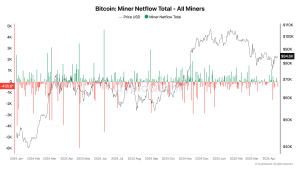SEC Commissioner Gary Gensler has responded to Sen. Warren’s inquiry about the ‘volatile’ crypto market, stating that the SEC needs more regulatory authority over the asset.
SEC Head Responds To Senator’s Crypto Concerns
On July 7th, Senator Elizabeth Warren highlighted the need to address the highly opaque and volatile crypto market and considering whether Congress needed to get involved. Her inquiry received a response from Securities and Exchange Commission Chair Gary Gensler in the form of a letter. Through the letter, Gensler expressed his belief that crypto investors are not adequately protected from fraud, scams, and financial abuse.
Gensler also warned against the use of stablecoins that crypto platforms can use to sidestep traditional banking rules and participate in money laundering and tax violations.
He wrote,
“It doesn’t matter whether it’s a stock token, a stable value token backed by securities, or any other virtual product that provides a synthetic exposure to underlying securities. These products are subject to the securities laws and must work within our securities regime.”
Can Crypto Be Regulated As Securities?
Gensler reiterated his speech at the Aspen Security Forum, where he called on Congress to increase oversight on transactions, products, and platforms functioning in the crypto market. Gensler has been in the news for his attempts to bring cryptocurrencies under the securities umbrella. However, with the SEC already under fire for suing Ripple Labs for the same issue, it does not look optimistic that Gensler will be able to overturn around 75 years of case laws preventing the claiming of digital currency as securities.
Senate Leaning Towards Tighter Regulations
Sen. Warren, a member of the Senate Banking Committee, had already approached the Financial Stability Oversight Council to initiate and devise a comprehensive and coordinated plan to regulate the crypto market.
Speaking about the need to create legislation to bridge regulatory gaps, Warren stated,
“I’m glad SEC Chair Gensler agrees and has directed the SEC to use its full authority to address these risks, and that he has also identified where additional regulatory authority may need to be granted by Congress.”
The conversation about regulating the market is meaningful, especially in light of the failed attempts of the crypto industry to limit reporting requirements for tax purposes in the Senate’s infrastructure bill. After discarding the proposed amendment, the bill stands to earn around $28 billion in revenues from the crypto industry over the next ten years.
Disclaimer: This article is provided for informational purposes only. It is not offered or intended to be used as legal, tax, investment, financial, or other advice.





















